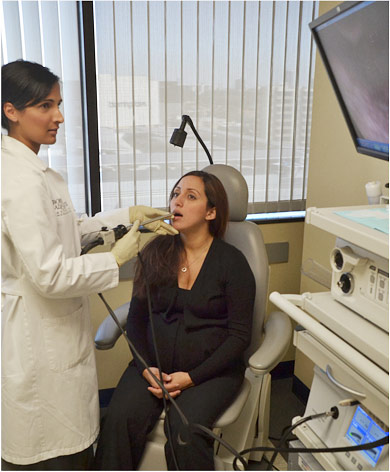- Question: How do the ingredients in e-cigarettes and vaporizers affect respiratory health? - August 16, 2019
- Bad Technique and Vocal Injury - January 9, 2019
- Is Edible Marijuana Dangerous for the Voice? Myths Dispelled - December 18, 2018
- Surprise! You have a hemorrhage - January 31, 2018
- Graves’ Disease: Treatment Overview - September 25, 2017
- Adele and the Stigma of Vocal Injury - July 11, 2017
- Vocal Curbside Consult: How does the thyroid affect the voice? - May 16, 2017
- Vocal Curbside Consult: How do hormones affect the voice? - May 3, 2017
- Vocal Curbside Consult: How do emotion and stress affect the voice? - April 17, 2017
- Vocal Curbside Consult: Vocal Recovery After Illness - April 7, 2017
Vocal nodules are one of the most feared vocal injuries among voice users and singers. It is one of the most commonly misunderstood and misdiagnosed problems seen.
What are vocal nodules?
Vocal nodules are thick calluses that form on the vocal folds. Nodules develop at the point of maximal contact of the vocal folds. They form to protect underlying delicate vocal tissue from repeated trauma. Vocal nodules are also known as karaoke nodules, nodes, singer’s nodes, and screamer’s nodes.
Are vocal nodules cancerous?
No, vocal cord nodules are benign. They are composed of normal, non-cancerous, thickened vocal fold lining. Nodules are the body’s way of protecting the vocal folds from repeated trauma.
How do vocal cord nodules develop?
Repeated vocal fold trauma will lead to nodule formation. This trauma can come in many forms but most commonly results from improper voice technique such as shouting and straining during singing or speaking too long. Improper vocal muscle use, called muscle tension dysphonia, will cause vocal strain and overly forceful closure. This is the most common cause of nodules. Additional conditions that can contribute to nodule formation include chronic allergies, acid reflux disease, and smoking.
How do vocal nodules affect the voice?
Typically, vocal nodules will cause a progressive decrease in voice quality. Some patients describe their voice as sounding hoarse, breathy, and rough. Most patients will notice decreased vocal range and vocal fatigue. These changes are typically reversible if addressed promptly. If left untreated, vocal cord nodules may permanently impact voice.
How do I know if I have vocal cord nodules?
The best way to determine if you have vocal cord nodules is to be evaluated by a qualified laryngologist that uses stroboscopy. These specialized physicians are specifically trained in recognizing and treating the conditions of the larynx.
An indicator of vocal injury is the inability to sing “Happy Birthday” (or a similar song that covers one octave) softly and in a higher key.
What is the best treatment for vocal cord nodules?
The gold standard treatment for vocal nodules is voice therapy from a skilled vocal therapist. These specialists work with patients to modify their method of voice use, promote vocal fold healing, and correct harmful vocal habits. In addition, a vocal therapist can customize a treatment plan around a patient’s unique demands. Treating other contributing conditions (such as GERD, allergies, etc) may help to slow the progression or recurrence of these lesions.
Will vocal nodules go away on their own if I rest my voice?
Vocal nodules can improve with voice rest but will recur when the voice user reengages the voice in the behaviors that led to the nodules. Nodules do not typically resolve on their own without addressing the conditions or vocal technique that initially caused them.
Is surgery typically needed for nodules?
In most cases surgery is not the optimal treatment for vocal cord nodules and should be reserved for longstanding nodules that are unaffected by voice therapy. Most nodules can be treated with voice therapy. However, there are new surgical techniques that have had significant success at nodule treatment, without the risk of nodule removal.
If I have nodules removed, will they come back?
Nodule recurrence is high unless the conditions that initially led to them, such as improper vocal technique, are addressed. Voice therapy is essential in identifying and correcting harmful vocal techniques.
Is my doctor qualified to diagnose and treat vocal fold nodules?
A laryngologist is the physician that is most qualified to diagnose and treat vocal fold nodules. These physicians have completed an ENT residency as well as a subspecialty in laryngology, the study of the voice. A laryngologist will use stroboscopy for diagnosis. Older laryngoscopy technology still present in many ENT offices has a potential of confusing polyps and cysts with nodules, leading to misdiagnosis.

To learn more about Dr. Reena Gupta or vocal nodules, please visit www.voicedoctorla.com.



